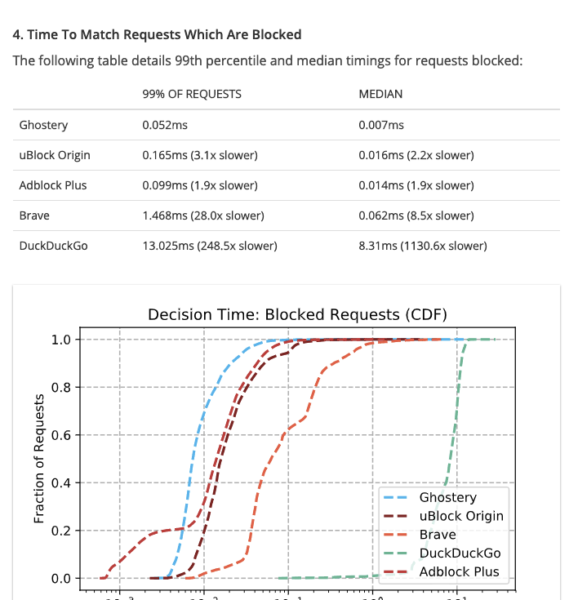Google won’t block ad blockers after all
Developer outcry and a study on the performance of content blockers seem to have changed the company's mind.
Last month Google was set to move forward with a change that would have disabled most blocking and content filtering capabilities of Chrome extensions by deprecating the webRequest API. The stated rationale was improved privacy, security and page load times. Now Google has reversed itself, after developer objections and a study that seemed to contradict one of its central assertions.
Google reversal. In a Google Groups post, Google engineer Devlin Cronin said, “The webRequest API is not going to be fully removed as part of Manifest V3. In particular, there are currently no planned changes to the observational capabilities of webRequest (i.e., anything that does not modify the request).”
This seeming reversal appears in part to have been motivated by findings from a study conducted by Ghostery. That study was undertaken explicitly in response to the proposed deprecation of the webRequest API in Manifest V3. It examined the performance of several popular content/ad blockers and “focused on the efficiency of their network filtering engines.”
Ghostery study finds blockers don’t slow pages. The study found that while not all blockers performed at the same levels, “all popular content-blockers are very efficient, having sub-millisecond median decision time per request.” The study concluded, “the manifest v3 performance claim does not hold based on our measurements.”
Indeed, other studies have found that ad-blocked pages load faster than when an ad blocker is absent. Improving page load speed is also one of the top reasons people use ad blockers.

Chart from Ghostery’s study
Why you should care. Most popular content blockers on Chrome will now survive. But this doesn’t really change much for marketers, who must deal with ad blocking as a growing threat on both desktop and mobile. Deloitte recently found that a majority of people in the U.S. practice some form of ad blocking or ad avoidance. Better educated and higher income populations are also more likely to block ads.
There are multiple tactics to address ad blocking, as well as industry-wide initiatives such as the Coalition for Better Ads and the IAB’s.
Opinions expressed in this article are those of the guest author and not necessarily MarTech. Staff authors are listed here.
Related stories